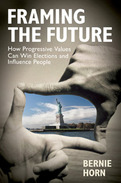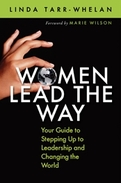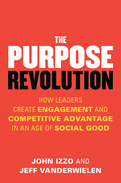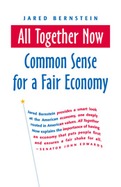2008
Polls consistently show that most Americans are progressives at heart. By margins of at least two to one, we favor affordable healthcare for all, even if it means raising taxes; want federal action to combat global warming; support stricter gun control; don’t want Roe vs. Wade overturned; and the list goes on. So why is it so hard for progressive candidates to win elections?
Because, says Bernie Horn, most progressives don’t know how to explain their ideas in ways that resonate with “persuadables”—the significant slice of the electorate who don’t instantly identify as Democrats or Republicans. These are the voters who swing elections. There’s been a lot of theoretical discussion about framing lately, but Framing the Future isn’t theory—the concepts outlined have been used successfully by progressive candidates across the nation, even in such conservative bastions as Montana, Arizona, and Florida.
Drawing on rigorous polling data and his own experience as a veteran political consultant, Horn explains how persuadable voters think about issues and make political decisions and why, as a result, the usual progressive approaches are practically designed to fail with them. He offers a crash course in the nuts and bolts of framing and shows how to use three bedrock American values—freedom, opportunity, and security—to frame progressive positions in a way that creates a consistent, unified political vision that will appeal to persuadable voters. He even offers advice on specific words and phrases to use when talking about a variety of issues and ideas.
2008
2009
—Robert Reich, former US Secretary of Labor
Want to make misbehaving corporations mend their ways? You can! If you own their stock, corporations have to listen to you. Shareholder advocate Andrew Behar explains how to exercise your proxy voting rights to weigh in on corporate policies—you only need a single share of stock to do it. If you've got just $2,000 in stock, Behar shows how you can go further and file a resolution to directly address the board of directors. And even if your investments are in a workplace-sponsored 401(k) or a mutual fund, you can work with your fund manager to purge corporations from your portfolio that don't align with your values. Illustrated with inspiring stories of individuals who have gone up against corporate Goliaths and won, this book informs, inspires, and instructs investors how to unleash their power to change the world.
Customers, employees, and investors are no longer satisfied with companies providing good products, good prospects, and good profits—they want them to do some social good, too. These “purpose-driven” companies do better on nearly every traditional metric: greater customer loyalty, higher retention, more innovation, and a healthier bottom line. But a nice mission statement and donations to charity won't make your company stand out. Using scores of real-world examples and practical exercises, John Izzo and Jeff Vanderwielen help leaders find a truly authentic purpose, one that is a natural fit for them and their organization. They describe concrete actions leaders can take to ensure that employees own it, customers and recruits connect with it, and every corporate action and activity reflects it.
2006
In the past 230 years, we've lost sight of Paine's vision. Our government has adopted a YOYO (you're-on-your-own) response in the face of even the most pressing national problems—diminished job security, the rising number of Americans without health coverage, stagnant incomes, decaying public schools, and more. “Here's a tax cut and a private account,” they tell us, “now go fend for yourself.”
It hasn't worked. The YOYO strategy has proven to be incapable of addressing the economic challenges that confront us and has instead led to a massive upward shift in wealth and opportunity favoring the few and deteriorating living standards and increasing insecurity for the rest of us.
All Together Now details an alternative WITT (we're-in-this-together) strategy for solving our most daunting problems. Detailing practical, collaborative responses to globalization, health care, employment, and other areas that could improve the lives of millions of Americans without increasing national spending, All Together Now shows that the challenges we face can be solved. Together, we can wield the tools of government to build a more just and equitable society.
• Exposes the destructive consequences of the 'you're on your own" approach to dealing with pressing societal problems
• Shows how a more collaborative 'we're all in this together" strategy can better resolve these problems and ensure that risks and benefits are shared equitably
• Details specific alternatives to current policies in areas like globalization, health care, and employment





















